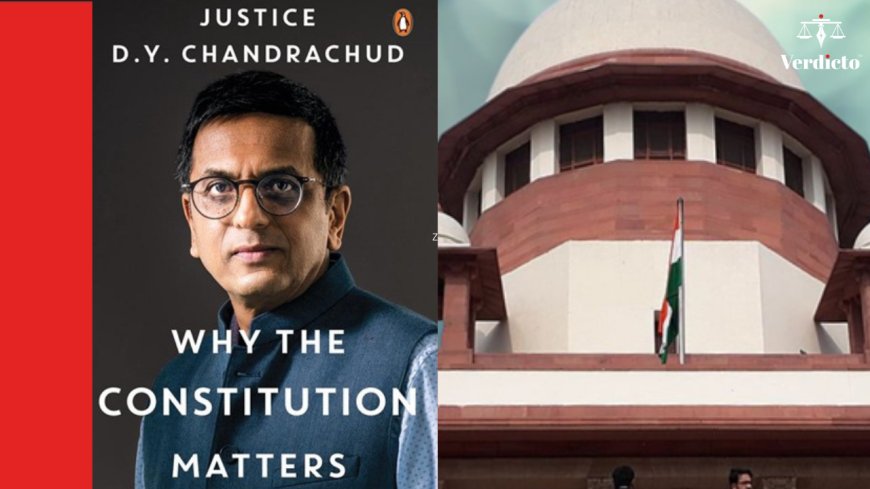Judiciary’s Independence Is Not About Going Against the Government, Says Ex-CJI D.Y. Chandrachud
Think independence means courts versus government? Former CJI D.Y. Chandrachud offers a different view. Read the full story on what defines impartiality.

“Judiciary’s independence is not about going against the government.” With this simple yet powerful line, former Chief Justice of India (CJI) Justice D.Y. Chandrachud captured the essence of judicial impartiality in a candid conversation with The Lallantop Show’s Saurabh Dwivedi.
At a time when institutions are often judged by how they confront or challenge the political executive, Chandrachud’s words remind us that the judiciary is not meant to be a counterweight to the government, but rather a custodian of the Constitution.
Independence Beyond Opposition
Explaining what independence means in practice, Justice Chandrachud stressed that the judiciary’s credibility lies in its fidelity to the Constitution, not in the frequency with which it strikes down executive decisions. “The role of the courts is to uphold constitutional values, safeguard rights, and deliver justice without fear or favour,” he reflected.
This perspective challenges a common public perception — that judicial independence is only visible when judges rule against the State. For Chandrachud, independence is about neutrality and courage, not confrontation.
Shaping India Through Landmark Judgments
If there is one judge who has presided over the turning points of India’s constitutional history in recent years, it is Justice Chandrachud. His judicial career has been marked by verdicts that define not just the law, but the social and political fabric of the country.
Among the most significant are:
-
The Electoral Bonds Verdict – Striking down the scheme for undermining transparency in political funding.
-
The Right to Privacy (2017) – Recognising privacy as intrinsic to the right to life and liberty.
-
The Ayodhya Verdict (2019) – Delivering a historic resolution to one of India’s longest-running disputes.
-
The Decriminalisation of Homosexuality (2018) – Reading down Section 377 in favour of dignity and equality.
-
The Sabarimala Judgment – Opening the temple to women of all ages.
-
The Same-Sex Marriage Case – Addressing evolving questions of equality and recognition in society.
-
The Article 370 Decision – Upholding the constitutional validity of revoking Jammu & Kashmir’s special status.
Each case reflects not only the complexity of law but also the delicate balance between tradition, modernity, individual rights, and state power.
A Judge Who Spoke Candidly
What made this interview remarkable was not just the list of judgments but Chandrachud’s willingness to reflect openly on the weight of decisions, the philosophy of judging, and the responsibilities of those who sit on the country’s highest bench. Far from the guarded tone of most judges, he offered an honest glimpse into the dilemmas and duties that define judicial life.
A Distinguished Journey
Justice Chandrachud’s journey to becoming the 50th Chief Justice of India is itself a story of commitment to the law. From his early years as a judge of the Bombay High Court (2000–2013), to his tenure as Chief Justice of the Allahabad High Court (2013–2016), and later his appointment to the Supreme Court in May 2016, his career has been steeped in constitutional jurisprudence.
By the time he demitted office as CJI in 2024, he had already left an indelible mark on India’s judicial history.
Why It Matters
For law students, practitioners, and ordinary citizens, this conversation is more than just an interview, it is a masterclass in understanding the judiciary’s place in democracy. Justice Chandrachud’s reflections go beyond the black-letter law to touch upon philosophy, responsibility, and the ethical compass that guides judicial decision-making.
At a time when institutions are under scrutiny, his words resonate with clarity: judicial independence is not measured by opposition to power, but by unwavering fidelity to the Constitution.
📌 Follow us on YouTube, Instagram, and Twitter for more updates.







